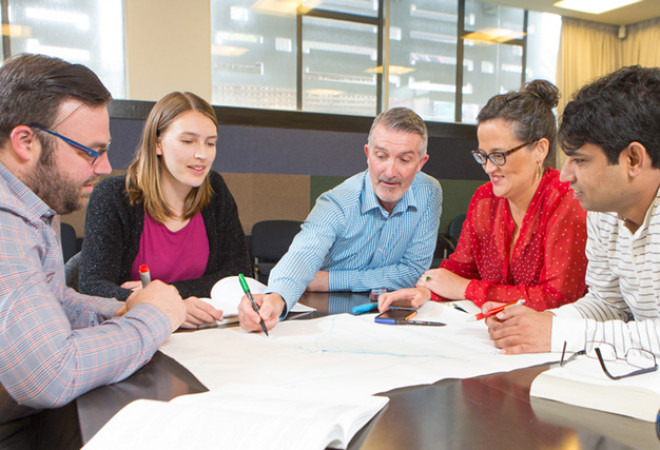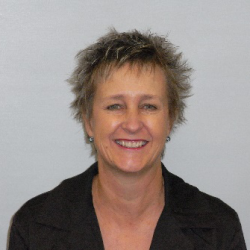
Establishing Communities of Practice | A pedagogy support mechanism for teaching teams in the New Zealand PTE environment
Status
Completed: 20 August 2017
Project Details
A one-year project, completed in 2017, to determine the effectiveness of a Community of Practice (CoP) as a mechanism for professional development of Youth Guarantee (YG) tutors in the Private Training Establishment (PTE) context. A collaboration of G&H Training Limited, The College of Future Learning NZ (FutureCol) and Workforce Development Limited.
Aims:
The main aims of the project were to:
- investigate the effectiveness and usefulness of a CoP as a YG tutor professional development mechanism
- investigate how a CoP can provide a space for tutors to develop their signature pedagogy
- develop CoP implementation guidelines for a professional development infrastructure
- design a CoP model which reflects the PTE context - substantially YG provision within a PTE.
Methodology:
A participative action research methodology was used for the project, which involved:
- a review of the literature
- an initial training workshop for YG tutors
- four subsequent monthly CoP meetings with the YG tutors
- an online survey conducted with the tutors to collect their feedback on the CoP meetings at the three-month (mid-way) point
- summative interviews with the tutors conducted at the conclusion of the CoP meeting period to gather their feedback about the effectiveness and usefulness of participating in a CoP.
Team

Anne Greenhalgh
Project Leader
Workforce Development Ltd
Greg Goodchild
G&H Training Ltd
Erena Fussell
Workforce Developments Limited
Bharat Guha
The College of Future Learning NZ
Dr Lesley Petersen
Petersen ConsultingStatus
Funding
$26,575.00 (excl GST)
Key Findings
The key findings from the project included:
- Commencing the project with a training workshop provided the tutors with an opportunity to explore the concept and practice of CoPs and determine the purpose of their CoP going forward. The workshop enabled the tutors to engage in and benefit from the CoP meetings as there was an established understanding of the CoP purpose and process, and their roles and responsibilities as CoP members.
- The monthly CoP meetings provided a place and space for the tutors to share their teaching experiences, discuss and seek solutions to teaching and learning challenges, and learn from each other. The CoP prompted the tutors to engage in critical reflection on their practice during the monthly meetings and in between the meetings.
- All participants felt that they had benefitted significantly from their experience as members of an active and effective CoP and were keen to continue. However, although they agreed that leadership of the CoP should be distributed and members should take turns to assume the coordinator role, this did not occur during the six-month project lifespan. This emphasised the importance of a designated (and in this case, external) facilitator, at least in the early stages of a newly established CoP.
- The successes of the CoP project were many, including: the tutors’ interest in continuing to participate in a CoP; the connections made across three organisations; the opportunity to be part of a CoP regardless of geographical distance; and the sense of belonging to a group of educators with commonalities in teaching experiences, knowledge and challenges in their field of teaching and learning.
- The CoP provided a conduit for teachers to explore their practice and develop knowledge and skills. The benefits for teachers belonging to a CoP would be increased by positioning the CoP as one of several offerings in a professional development programme or package. Teachers could utilise the time between CoP meetings to capitalise on these professional development opportunities. Based on the findings from this project, professional development events organised internally by the organisation could include: mini training sessions, workshops, invited speakers, all staff professional development days, and a teaching and learning discussion topic on the (monthly) team meeting agenda.
- The findings from this project suggest the following factors are important for the effective design of a CoP that encompasses online and face-to-face conditions: a shared domain of interest; being committed and prepared to learn from each other; creating a diversity of perspectives and approaches to teaching and learning; ensuring a balance of contribution across the group; provision of an online platform that enables connection across geographical boundaries and organisational boundaries; and the creation of opportunities and activities which encourages members to continue their professional development outside CoP meetings.
Key Recommendations
The key recommendations and themes from the project included:
The value to the tutors | There was consensus across the participant group that coming together as a group of tutors in a CoP was highly beneficial. As well as providing an opportunity to share practices and talk about challenges in their teaching, some of the tutors commented on the benefit of being part of a group that met regularly reducing the reality of geographical isolation in their organisation. It provides opportunities to share what they know as well as ask for advice on issues or gaps in their knowledge.
Developing a signature pedagogy | Developing a signature pedagogy as a teacher is an evolving process. The CoP was a new experience and a new opportunity for the tutors to consider, discuss, share and learn about their teaching practice. An indicator of the tutors developing their signature pedagogy was their comments about increased engagement in reflecting on practice and how this was enabling them to evaluate their choice of teaching approach and its impact on the students.
Value to the organisation | The CoP provided a much wider exposure to ideas, resources, activities and strategies to improve learner engagement and outcomes, which could be easily added to organisational knowledge. This is not only a useful professional development tool for those already in the field, but is also a potential tool for induction purposes with new educators.
The facilitator/coordinator role | The project participants noted the importance of having someone who has experience in establishing a professional CoP to facilitate a training workshop, guide members through decision-making about the CoP purpose, and call and ‘chair’ meetings, at least in the early phases of the group’s formation. Based on the researcher’s use of regular email correspondence with the group members between the CoP meetings, this mode of connecting the group would be a beneficial activity and role for a coordinator.
CoP meeting structure | A clear structure and process to the meetings was considered important by all participants. This included the usefulness of a meeting agenda, and specified time allocation to hear from each member in attendance. This carried over to the time between meetings as well, when email communication from the facilitator assisted participants to keep focused on the work: incorporating changes into their own practice, reflecting on results and noting shifts in understanding for future sharing with the group.
Transferability to other educational contexts | This project extends the scope of the existing knowledge and practice of CoPs as a professional development support mechanism in the New Zealand PTE sector. The outputs from this project output should also be useful right across the New Zealand tertiary sector and the tools developed should be easily transferable and useful to other tertiary providers.
Future research | The opportunity to investigate the impact of a CoP operating over a longer period of time would be an interesting next step as a follow up to this project, and also a key consideration for an organisation intending to implement CoPs as a teacher development initiative.
A research report prepared by Anne Greenhalgh and Lesley Petersen.
(PDF, 635KB, 32-pages).
- 31 July 2017